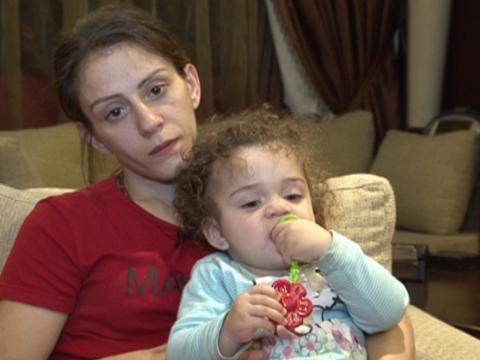Lebanese children live and die as if they never existed

“My children are growing year after year, with a big future ahead of them, but it would be impossible for them to work or obtain a school degree and get a job like any other Lebanese citizen,” says Rose, a mother of two children without any identification [ID] who says if her children become ill, she can’t even take them to the hospital because they don’t according to country’s records, they do not exist.
Rose’s children are just two of many. A World Vision study recently revealed the daunting situation and stark future facing Lebanese unregistered children. According to Lebanese law, all children born of Lebanese fathers are entitled to receive Lebanese citizenship. This, however, does not often happen. There are many children with Lebanese fathers who, for one reason or another, are not registered, do not have IDs or citizenships and thus have no access to public education or health services.
“It is a small plastic card, called [an] ID card. Many [people] have them, but they have no idea what it’s worth,” says Charbel, a 23-year-old. “[Without an ID],there’s nothing to prove who you are. All your life depends on this ID. This drives a person to desperation and falling out of control. I was very depressed and reached a stage where I considered suicide. I do not want anything from this world. I just want an ID just to [be able to] do something, maybe get enrolled in the army and serve my country. I want something that proves who I am, that I am Lebanese.”
“I could not obtain a high school degree, even though I took the highest grade in the whole school,” says Josephine, 27. “What did we do wrong? If there was a disagreement between the mother and the father, why is it the children fault? Why don’t we, as Lebanese children, have an ID? We are Lebanese children!”
Within the current Lebanese system, only the father is entitled to provide the Lebanese citizenship and to register the newly born child after receiving the proper documentation from the doctor or midwife and then from the mayor. Then, the father has to take these documents and register the child in the personal affairs unit under the Ministry of Interior in the capital, Beirut. And, if the father doesn’t register the child within one year of the child’s birth, he never can without going through a law suit.
One of the problem with the registration system is that neither the child nor their mother can file a request for their registration until the child is over 18 years old and then he/she must file a lawsuit to prove that the child’s father was Lebanese. Another issue is that the law does not penalize fathers who do not register their children. Finally, the study revealed a general lack of awareness about the registration procedures and the consequences of not registering one’s child.
“In many cases, failing to have an ID, leaves children with no prospects for the future. They cannot even dream of tomorrow,” said Sanaa Maalouf, World Vision Advocacy and Policy Officer. “Often times [children without IDs] are vulnerable to various child protection issues. I was very struck hearing their misery in their voices and seeing the pain and agony in their eyes. The level of discrimination and deprivation that these children face is beyond describing and no one should ever have to face it. This is not only a fight over identity, it is a fight for a decent and happy life, a life that none of these children is currently enjoying,” she added.
World Vision had identified unregistered children as one of the most vulnerable groups children in Lebanon and has prioritized the issue. It has collaborated with the concerned ministries and civil society organizations members of "the committee addressing the situation of Lebanese unregistered children " in Lebanon . A TV spot showing the violations of the rights of these children was screened on all local TV channels in Lebanon. A guide for the registration of Lebanese children and a legal analysis was also launched as a reference.